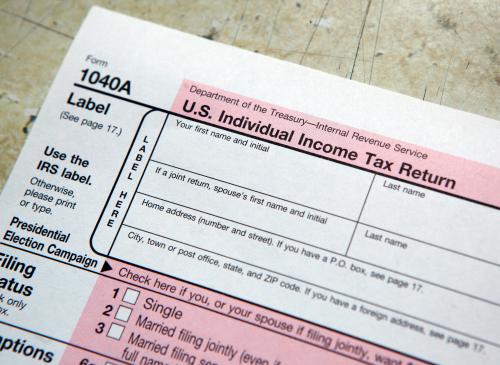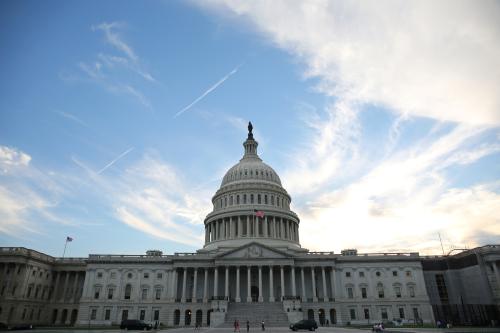This article originally appeared in Fortune on January 11, 2018.
The tax bill passed last month by the Republican Congress and signed by President Donald Trump—the Tax Cuts and Jobs Act—will create huge budget deficits and is enormously tilted toward corporations and wealthy households.
Its proponents argue that it will also benefit workers over time by raising corporate investment and productivity, which affects worker earnings. But, even in the short term, they claim that companies will also share some of their higher after-tax profits with their workers.
Indeed, Walmart announced a pay raise and bonuses for all of its workers Thursday to a minimum of $11 an hour, attributing the increase directly to the bill’s corporate tax cut. Supporters of the tax law, such as Republican Sen. Orrin Hatch of Utah, have been quick to declare this action as proof that the tax cuts would help workers.
But did the new law actually make a difference? Would Walmart have still increased worker pay and approved bonuses without the tax decrease?
I am dubious about Walmart’s claim. First, it has already been raising wages, and began doing so well before the corporate tax cut passed. It first did so in a well-publicized move in early 2015, when it raised its minimum wage to $9 an hour. In 2016, it followed up with another increase to $10. The current increase simply continues a trend it started three years ago.
Second, there are very good reasons for Walmart to increase benefits—even absent the tax cut—because of the labor market circumstances it faces. With the nation’s unemployment rate now at nearly 4 percent, labor markets around the country have grown tight, and at least some employers feel wage increases are necessary to attract and retain their best workers. Indeed, many economists like me wish more employers were doing so, and wonder if our low national productivity growth prevents this from happening more frequently.
There are very good reasons for Walmart to increase benefits—even absent the tax cut—because of the labor market circumstances it faces.
Third, as many states and cities around the country raise their minimum wage requirements above the federal level (stuck at $7.25 since 2009), companies like Walmart are sometimes forced to raise their own pay, especially if they want to stay enough above the legal minimum to distinguish themselves from other low-wage retail and fast-food establishments.
But there is an even deeper reason the company is doing this. Over the past several years, Walmart has been taking a number of steps to leave behind its reputation as a low-wage employer. It has raised pay and benefits and engaged in more on-the-job worker training than in the past. The Walmart Foundation has been closely involved in these efforts, and has encouraged other retail employers to do the same in order to collectively raise the reputation of the entire sector.
Why would Walmart or any other employer choose to raise its costs? Very simply, Walmart is doing so because it has come to believe this is good for its bottom line. Economists have long argued that even within a narrow industry and region, employers have choices over their labor market strategies, and how to best compete. Some choose a “low road” strategy, competing on the basis of the lowest labor costs possible, and tolerating the resulting high turnover and weak worker performance. Others choose a “high road” strategy, investing in the skills and performance of their workers, and lowering worker turnover in the process.
Very simply, Walmart is choosing to take the “high road” in its human resources policies. Tired of its reputation as a bad employer, and of the low-performing employees it was attracting, the company chose instead to raise pay and train more, betting that this approach would improve the firm’s performance and profits over time. My impression is that Walmart executives believe this strategy is working, and will continue to implement it while encouraging other retail employers to do the same.
There are many logical, market-based reasons for Walmart and other employers to raise worker pay and performance; they didn’t need a large corporate tax cut to do so. The enormous fiscal costs and obscenely unequal benefits created by the new tax bill are clearly not justified by any gains it will bring to workers—at least for now.





Commentary
Op-edDid Walmart raise wages because of the tax cut?
January 16, 2018